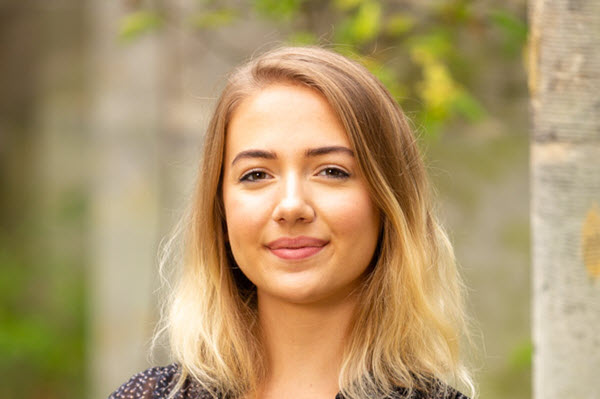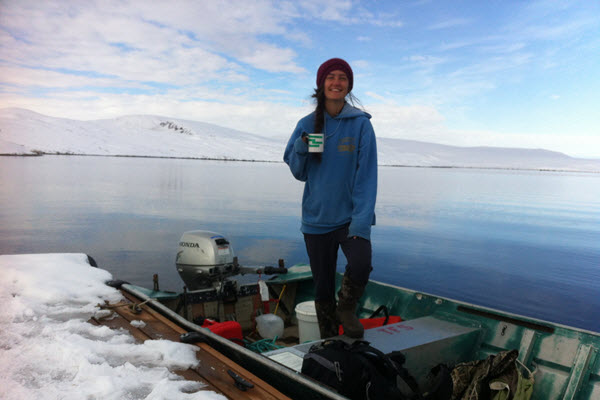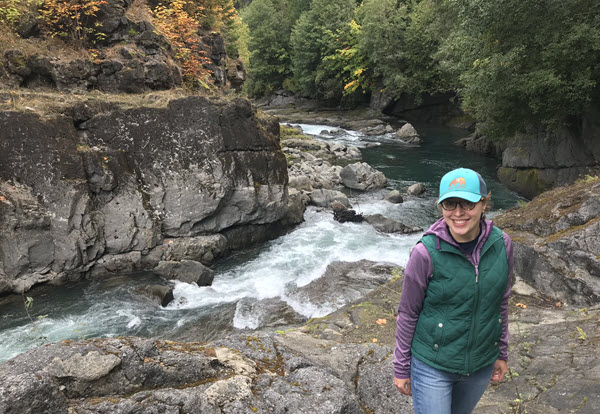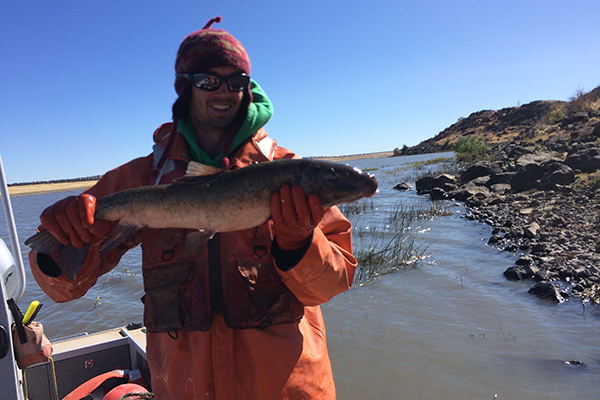Environmental Studies Alumni Profiles

Mara Midieri
"I'm a graduate of UP's Class of 2018, and I graduated with a B.S. in Organizational Communication and a B.A. in Environmental Ethics and Policy. The combination of my two programs of study provided me with endless skills and research opportunities that informed and celebrated my desire to be a successful mediator of scientific communication in a world with ever-growing interdisciplinary problems. I enjoy moving from scientific fieldwork to sharing community stories, and working with people from all different backgrounds.
Currently, I'm pursuing a Masters of Science in Sustainability Science & Policy at University of Maastricht in the Netherlands. My one-year masters program concludes in August of 2019, after which I will seek employment in the sustainability field. Though I'm not yet sure what country or city I will end up in next (keeping my options open!), I know that my passion for environmental justice and interest in urban planning will guide my career decisions in the near future."

Audrey Huff
The Environmental Science program at UP provided me with an intimate learning community and a faculty which supported my academic endeavors – even before I arrived on campus as a transfer student at the start of my junior year. Through the courses I took, I gained a scientific foundation for my future research, as well as an appreciation for how deeply science is embedded in our everyday lives. Through the small class sizes and investment of the faculty, I had valuable mentors who helped open my eyes to the opportunities I could pursue both outside of class during my undergraduate career, as well as after my graduation. Even three years after graduating, I was still able to ask my undergraduate advisor for advice (lots of advice) when approaching graduate school applications and decisions.
I have spent the past three years since graduating working as a seasonal field technician (getting paid to hike, boat and spend all day outside – what could be better?) in Minnesota, North Dakota, Alaska and California. Between these positions I was able to spend months travelling both within the United States and abroad. Currently, I am in my first year of a PhD program at the University of Minnesota in Duluth, MN studying limnology and oceanography through their Water Resources Science graduate program. I am excited to have this great opportunity to work with another intimate and tight-knit community of environmental scientists through the Large Lakes Observatory studying the Great Lakes’ benthic communities (and to still get paid to spend all day outside, from time to time).

Morgan Clay
Class of 2010 – B.S., Environmental Science
Class of 2016 – M. Eng., Civil Engineering
When I started at UP, I wanted to take every science class they had to offer and even some engineering classes… just because I could. I graduated with my degree in environmental science in 2010 and began to work for the Oregon Department of Fish and Wildlife later that summer. Between 2010 and 2015, I worked on various projects on the lower Columbia River for Oregon Department of Fish and Wildlife, Washington Department of Fish and Wildlife, and the US Army Corps of Engineers.
When I decided I wanted to go to grad school in 2014, I ended up back at UP for a master’s in civil engineering. I wanted to be able to apply all my knowledge of biology and earth sciences that I learned as an undergrad to build projects that protect and enhance our watersheds. Thanks to both of my degrees from UP, I now work for Otak, a private engineering firm. I get to flex my environmental science muscles along with my engineering training daily. My work is focused on improving the impacts of urban development on natural surface waters. I support design teams with the analysis, design, and reporting of fish-passable stream crossings; bioengineered bank stabilization; fish habitat features including large wood; streambed reconstruction; and low-impact development related to stormwater management.

Nathan Banet
Class of 2011
Fish Biologist, U.S. Geological Survey
“I have always loved the outdoors. As I entered my first year in the Environmental Science program at UP in 2007, I wondered if my future career could protect the habitats in the same places where I enjoyed leading UP’s Outdoor Pursuits Program trips. One of my favorite trip destinations was Mt. Hood. When I learned of a research opportunity examining salmonid habitat in Mt. Hood National Forest within UP’s Environmental Science Department, I was thrilled that research could be a complementary component to my undergraduate education. I learned to think critically about complex issues threatening the recovery of salmonid populations in the Columbia River Basin. I began working on the salmonid habitat project in the summer of 2009 and continued this research for the remainder of my time at UP. I was able to develop skills in monitoring water quality parameters in the field, culturing water samples for bacteriological analysis in UP’s microbiology lab, presenting results at multiple conferences (M.J. Murdock College Science Research Conference and Oregon American Fisheries Society Annual Meeting), and co-authoring a published manuscript. This research experience was crucial to establishing my foundation and future career in fisheries research.
Several years later, I attended graduate school at the University of Minnesota and conducted a radio telemetry project examining movements of invasive common carp (Cyprinus carpio) for my M.S. Thesis. During my study, I collaborated with a local watershed district to recommend strategies for management of this aquatic invasive species to improve water quality in a chain of lakes within the Twin Cities. My education and research experiences at UP prepared me well to further develop my skill set in collecting and analyzing data, presenting results to multiple audiences (Minnesota Public Radio, Rice Creek Watershed District, and the National American Fisheries Society Meeting), and collaborating with local environmental management agencies. Following graduate school, I returned to the Northwest and began my professional career as a Fish Biologist with the U.S. Geological Survey Western Fisheries Research Center. I work with two federally endangered fish that are endemic to the Upper Klamath Basin, the Lost River sucker (Deltistes luxatus) and shortnose sucker (Chasmistes brevirostris), in Southern Oregon. I collaborate with a team of biologists dedicated to studying why these species are in decline and how we might recommend strategies for their management and recovery. Outside of work, I enjoy exploring beautiful southern Oregon and traveling with my wife and golden retriever. To this day, I attribute my passion for fisheries research to my undergraduate research experience with UP’s Environmental Science Department. I have enjoyed seeing the Environmental Science Department grow over the years and look forward to hearing about the contributions of future Environmental Science alumni.”




